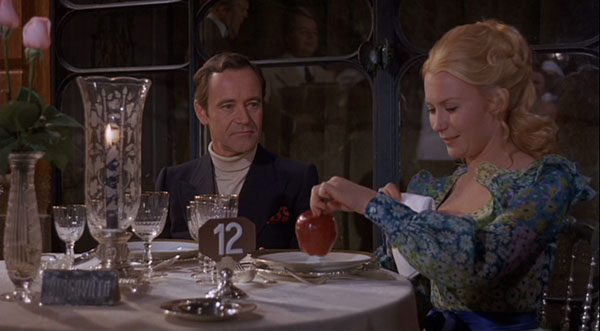One of those long-discussed greatest-films-ever which upon first glance (and second glance) actually does seem to be one of the greatest films ever. It’s a super story with an incredible character for Gloria Swanson and boy, she nails it, but it also helps that I am a film nerd. Swanson helped destroy Erich von Stroheim’s directoral career 20 years earlier and now Wilder casts Swanson as a washed-up super-eccentric former silent actress and Stroheim as her tragic manservant. Enter William Holden and his young friends, all wannabe writer/directors, and a cameo by Cecil DeMille and Wilder’s got room to skewer damn near everything in Hollywood. And he manages to keep the mood comical while preserving a film noir (the commentary calls it monster-movie) atmosphere, without letting anybody’s flaws go unpunished.

Opens with William Holden dead in a swimming pool, as he introduces his own dead body then narrates his story. Sound familiar, American Beauty?

A dead-end screenwriter, he’s trying to avoid getting his car repoed when he pulls into a faded mansion just in time to see Swanson and Stroheim preparing to bury her pet monkey. She is pleased to meet a hot young screenwriter, hires him immediately to work on her monstrous script of Salome, which is to be her long-awaited return to the silver screen.

Holden had no clear prospects as a screenwriter, he’s got no cash and no girl and he dreads the shameful return home to the local newspaper he left to pursue his Hollywood dreams, so he hangs out working on her futile script for a clueless Cecil B. DeMille, realizing too late that he’s becoming her kept boy.
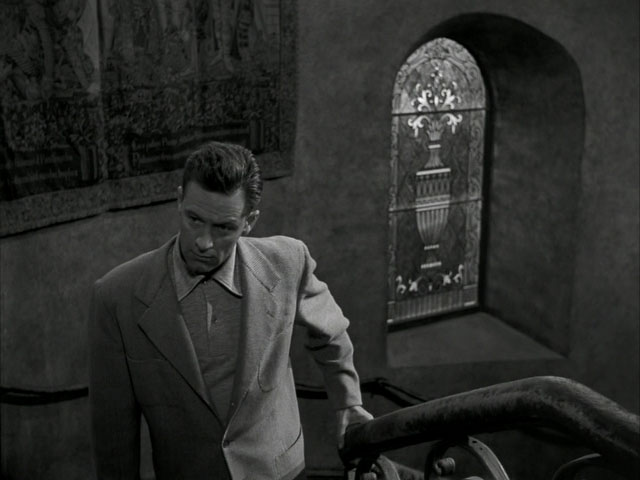
Was up for bunches of oscars but got its clock cleaned by All About Eve at the awards. Still came away with writing, art direction and music (beating Samson & Delilah, the actual film DeMille is seen shooting on the Paramount set). I don’t know if Golden Globes were important then (or if they are now) but it got picture/director/actress over there.
DeMille and Swanson:
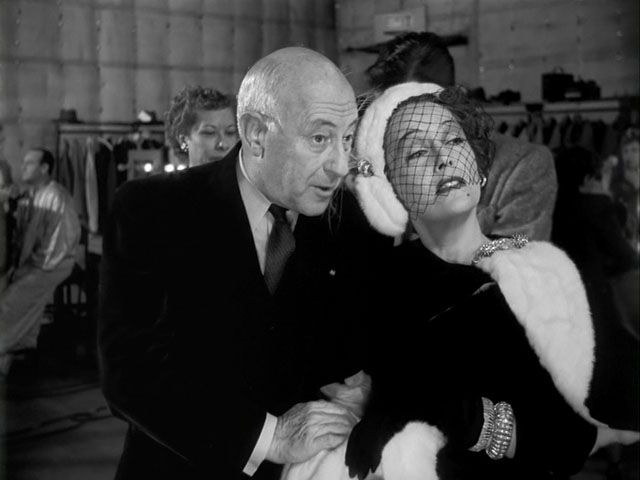
Immediately preceded Ace in the Hole, a dark time for Wilder. Stroheim would only be in seven more films before his death. Holden would play Audrey Hepburn’s object of affection in Sabrina. Swanson had profitably retired from acting and did not use this as a springboard back in, though she did make quite a few TV appearances.
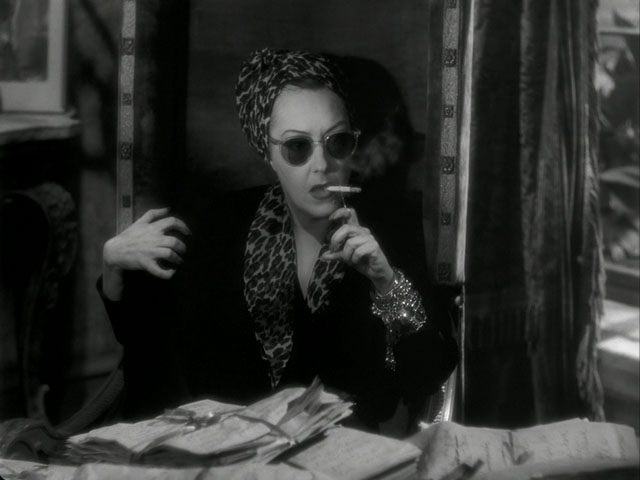
Apparently was turned into an Andrew Lloyd Webber musical in the 90’s.

IMDB trivia page is packed. Among the actors who turned this movie down: Double Indemnity star Fred MacMurray, Red River star Monty “Raw Deal” Clift, Mae West (who was not in silent films), early Lubitsch star Pola Negri and Greta Garbo.
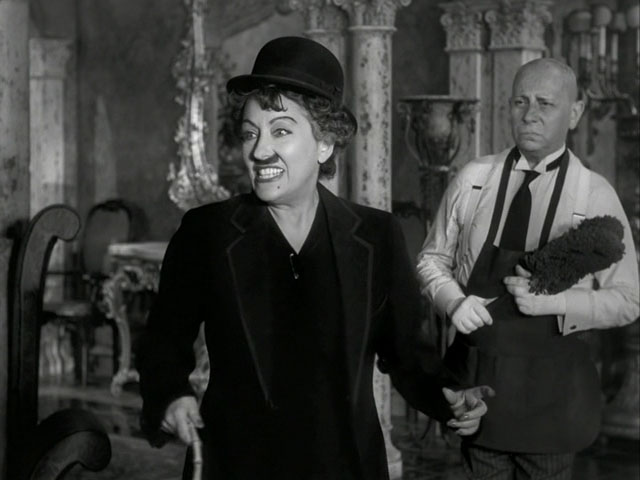
Erich von Stroheim hadn’t directed in 20 years… Queen Kelly with Gloria Swanson having been his downfall. Norma Desmond says DeMille directed her twelve times – he actually directed Swanson six times. Love interest Nancy Olson went on to Disney flicks in the 60’s and Jack Webb (her fiancee Artie) would spend the rest of his career writing and acting for Dragnet.
Holden with Webb and Olson:
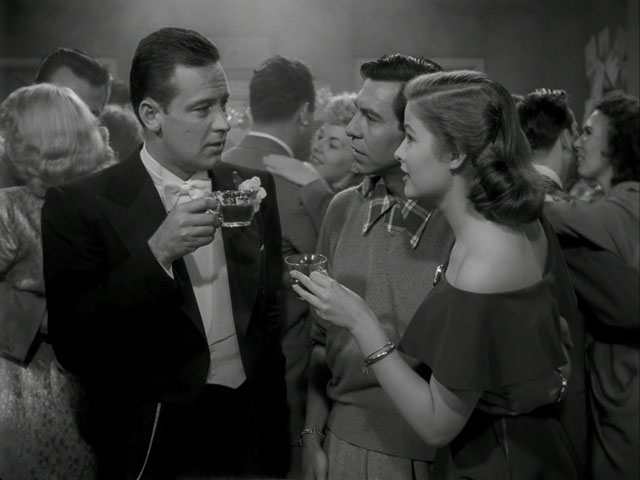
Norma’s “Waxworks” (her bridge partners): H.B. Warner (DeMille’s Jesus in King of Kings, later a Capra regular), Buster Keaton (who was actually doing alright in ’50 with his TV show, in between film roles In The Good Old Summertime and Limelight) and Anna Q. Nilsson (not pictured, who costarred with Warner and worked with DeMille).
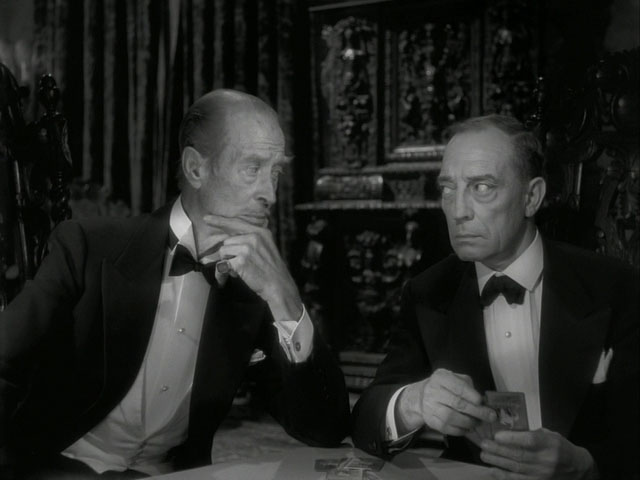
Film/dialogue moment #1: “There was a tennis court… or rather the ghost of a tennis court, with faded markings and a sagging net.” We see the court already, but our screenwriter/narrator feels the need to fill spaces with dialogue and also tell us about it.

Film/dialogue moment #2: Norma Desmond wordlessly brushes away a microphone.

Ready for her close-up:
























